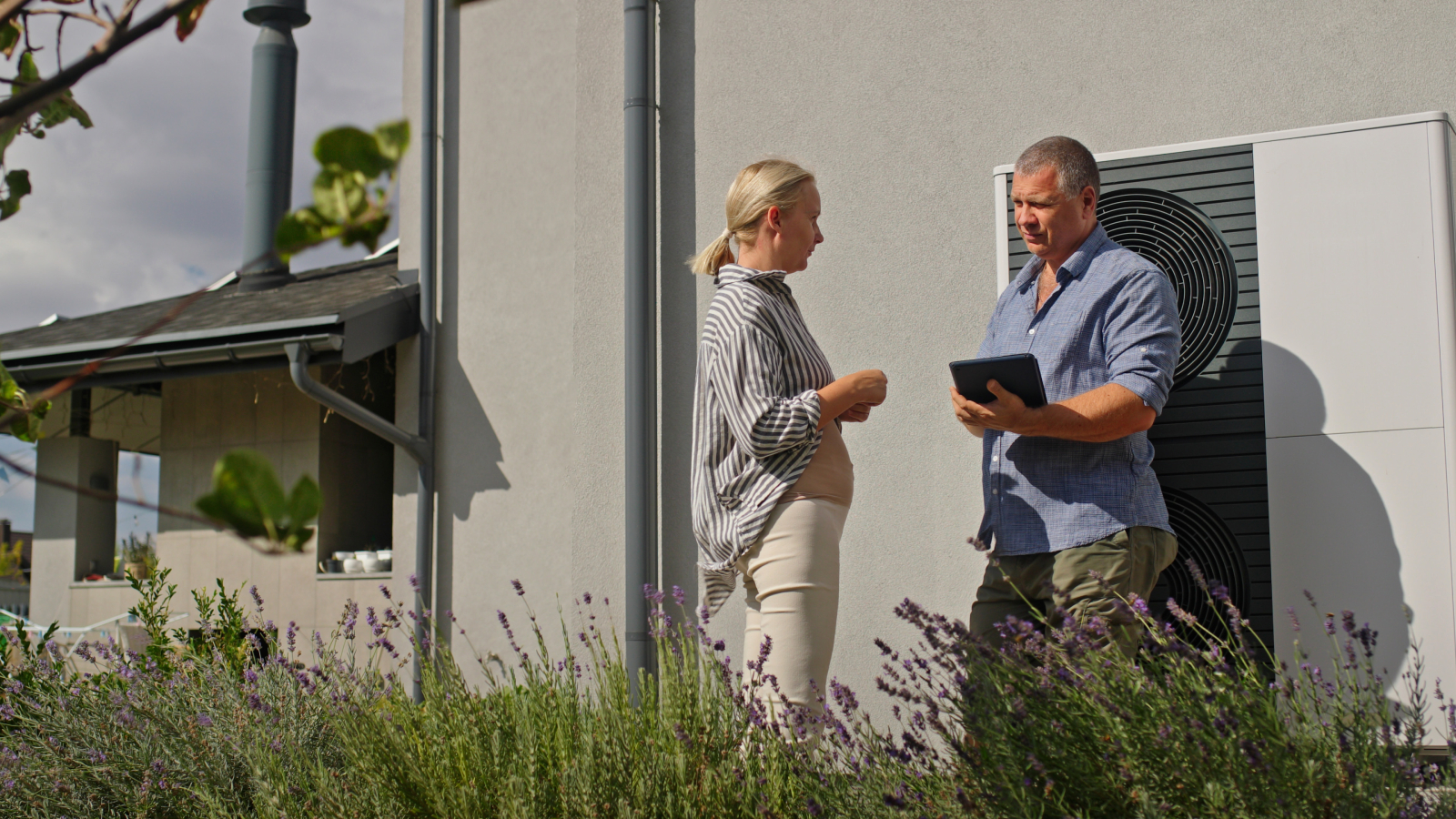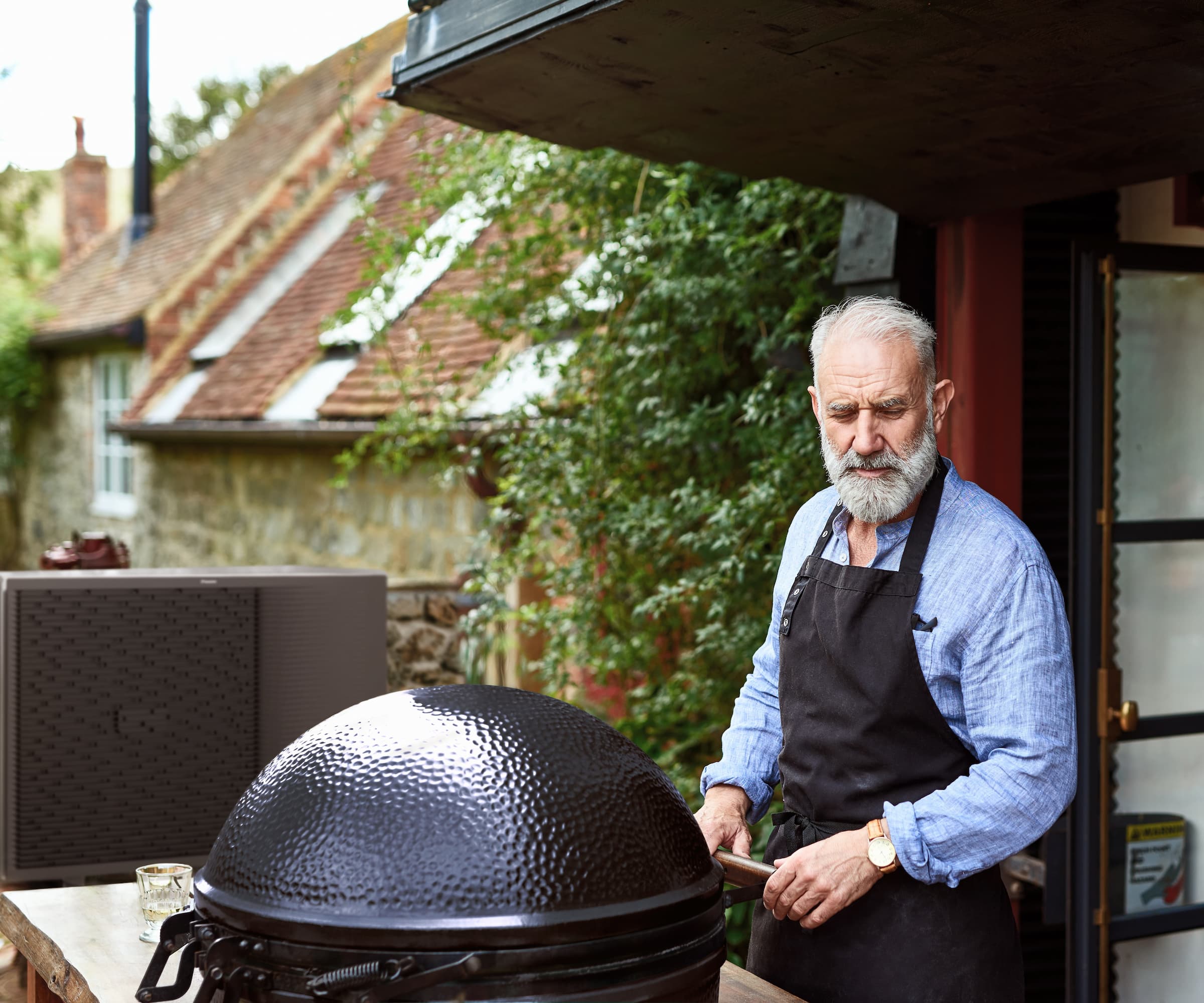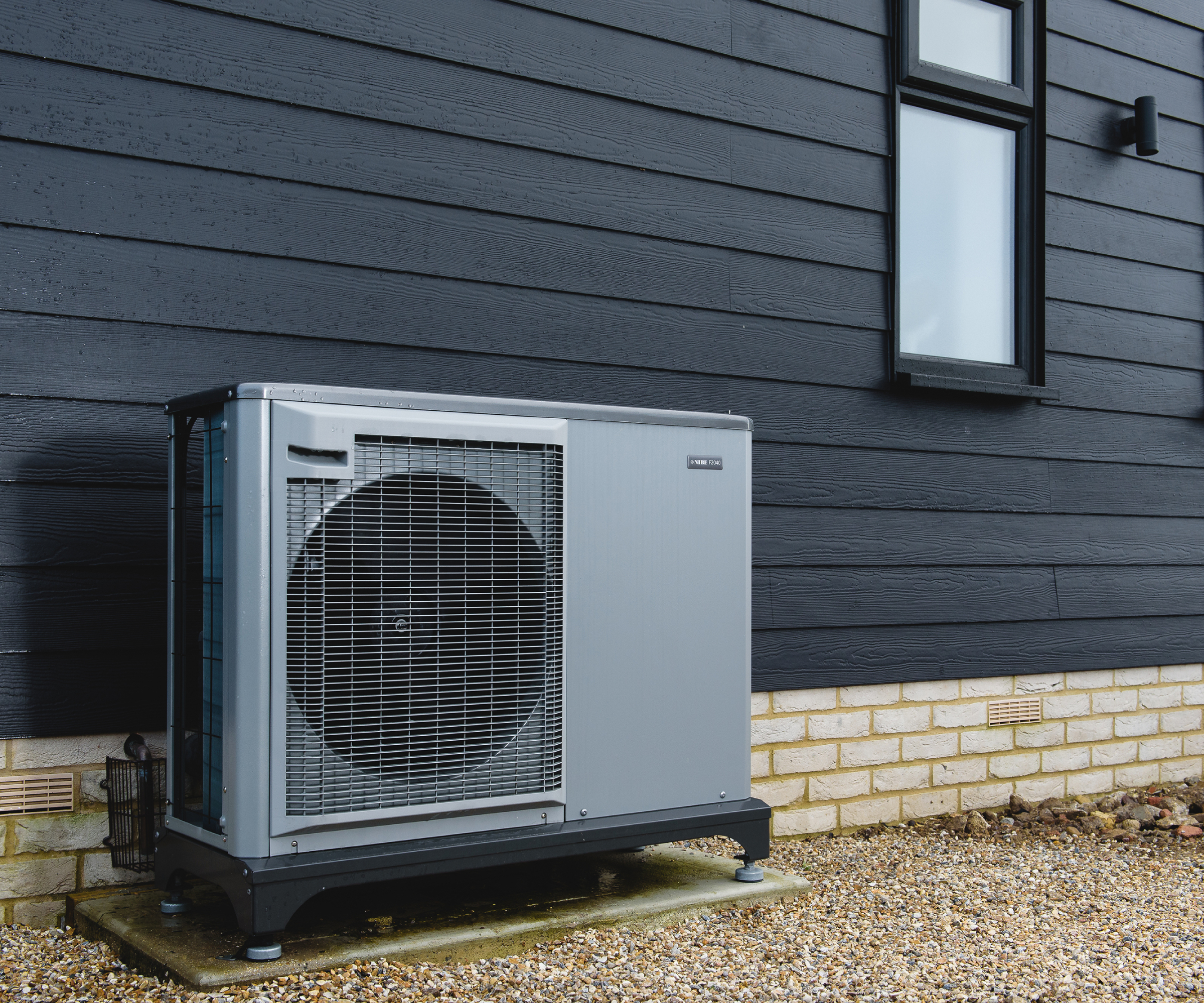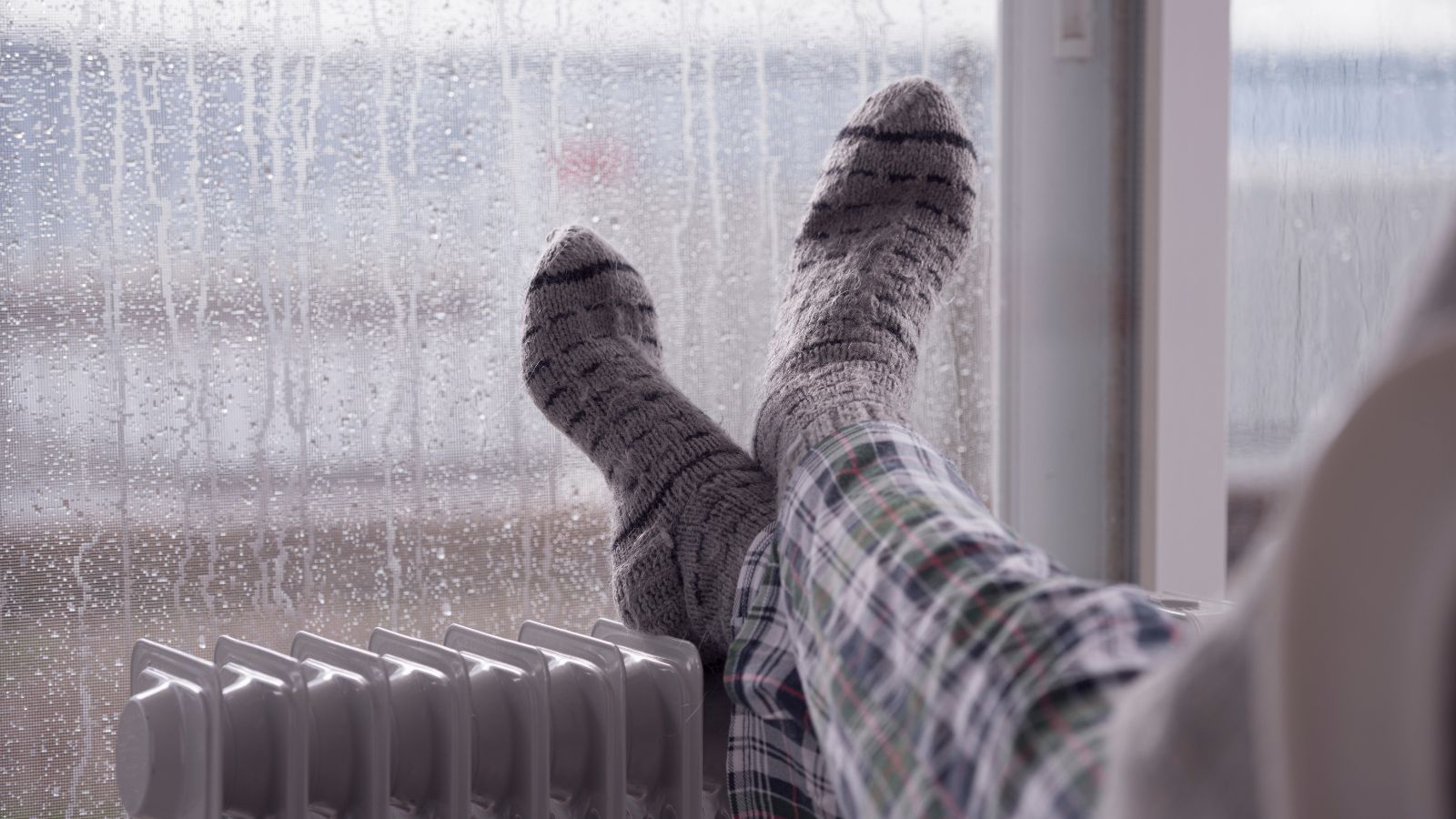Can my neighbour complain about me putting in a heat pump? Yes, but here's how to avoid it say the experts
Worried your neighbours might be able to put a stop to your heat pump plans? We explore why they can complain, and the measures you can take to prevent problems

With the main component of an air source heat pump located outside your home, it's natural to question 'can my neighbour complain about me putting in a heat pump' – particularly if you live in a highly populated residential area.
After all, the main concern of most neighbours when they hear a heat pump is on the cards are the potential noise levels outdoors and the impact this may have on their enjoyment of their own home and garden.
The good news is, while they are within their rights to complain, it will only hold weight if you haven't adhered to the regulations. We asked the experts how to avoid neighbourly conflict and here's what they recommend.
On what grounds can my neighbour complain about my heat pump?
One of the most common heat pump myths is that air source heat pumps are noisy, and while they aren't considered noisy in relation to the decibel levels they must adhere to, it's the issue of noise that usually causes neighbours to complain.
However, the reality is, they are quieter than most people think, says Hamid Salimi, residential product manager at Daikin UK.
"While it’s normal for heat pumps to make some noise, a Daikin outdoor unit for example, is usually no louder than 60 decibels, just like an electric toothbrush or a normal conversation. Indoor units are even quieter," he adds, "making a gentle whirring noise which measures 30 decibels at most. For context, that’s quieter than a refrigerator and as soft as a whisper. "
"Sometimes planning officers and environmental health officers don’t agree on heat pumps either," says Leah Robson, co-director of Your Energy Your Way and member of Heating Trades Network UK.
Bring your dream home to life with expert advice, how to guides and design inspiration. Sign up for our newsletter and get two free tickets to a Homebuilding & Renovating Show near you.
"Environmental health will usually look at noise, which is why we carry out a recognised Microgeneration Certification Scheme (MCS) noise assessment and produce a report as part of any air source heat pump installation," she says.
"Personally, I think heat pumps get unfairly demonised. A boiler flue is much noisier, and air conditioning is often installed without following any rules. Modern heat pumps are very quiet, so it’s actually quite unlikely a neighbour will be disturbed. The only issues I’ve seen are with councils that have stricter rules than the national ones," she adds.

The importance of planning approvals
However, if you have adhered to the noise levels, the only other time a neighbour can complain about you putting in a heat pump is if they believe you haven't sought the correct approvals.
“To help avoid any reason for neighbour complaints when installing a heat pump, it’s also key to ensure compliance with the updated planning regulations," says Achilleas Georgiou, residential heating advisor at Mitsubishi Electric.
"Since May, many restrictions have been relaxed, and in many cases, planning permission is not usually required and the rule requiring a 1m set-back from the boundary has also been removed in England."
The exception to the rule? Conservation areas and listed buildings. "If you’re in a conservation area, you’ll need planning permission," confirms Leah Robson, "and in conservation areas or listed buildings, you can’t put a heat pump at the front of the property even if it passes the noise test."

Hamid currently leads a team of product specialists covering all aspects of residential renewable heating. Hamid specializes in and talks about Heat Pumps, Renewables and Net Zero.

After a career in IT, Leah worked for a company installing solar panels and heat pumps and this ignited her passion for helping people make the switch to low carbon heating. She set up Your Energy Your Way, which has grown into a successful female-led business that installs bespoke renewable energy systems for homes and businesses across the South-East.

Achilleas Georgiou is Residential Heating Advisor at Mitsubishi Electric’s Living Environment Systems Division, focusing on renewable heating systems – including heat pumps – for homeowners across the UK. His broader experience spans the corporate, public and NGO sectors, and includes corporate communications, public affairs, media relations and crisis management.
How can I make sure my neighbour can't complain?
While we'll come on to tackle what you can do if your neighbour does complain, the main objective when installing a heat pump should always be to ensure it's done correctly so that there isn't any cause for comeback.
"Installations, particularly around unit size and noise, must still meet MCS standards," advises Achilleas Georgiou. "Outdoor units must not exceed the size restrictions of 1.5 m³ for houses and 0.6 m³ for flats, and they must operate within the MCS noise limits.
"If these standards are followed and a certified installer carries out the work, the risk of neighbour complaints is very low, since the system should be both compliant and unobtrusive," he says.
"The most important thing for avoiding noise complaints is to make sure the installer carries out the noise test properly, as it can be a bit tricky and easy to get wrong," adds Leah Robson.
"For example, in flats you have to think about the surrounding rooms, is it near a bedroom (habitable) or a storeroom (non-habitable)? That affects where the heat pump can be placed, and a good installer should always avoid the worst places to install a heat pump."
One thing you can do yourself prior to fitting is check that your heat pump has a label clearly stating the sound level, as all heat pumps must have a label stating this.
And, if you are worried about noise, you do have options available says Hamid Salimi. For noise-sensitive areas, even quieter heat pumps can be selected, although you may need to accept a small drop in efficiency for this reduced power.
"Most Daikin heat pump models offer a ‘low sound mode’ which will set the heat pump to run at a lower fan and compressor frequency in a noise-sensitive area," he confirms. "However, it is important to note that the heat pump won’t offer such high capacity in this mode. Some of our quiet models also come with extra sound insulation, specially designed fan blades to reduce sound and fan grilles/facia which hide the fan. These all result in lower sound too.
"We would also recommend using flexible rubber feet, flexible hoses, anti-vibration dampers (supplied with some heat pumps) and good practice such as installing the system on the floor, rather than hanging it on an exterior bedroom wall for example," adds Hamid.
And of course, perhaps the first and most important step when making changes to your home is to get your neighbours on board with your plans, by discussing it with them in advance of the work. While they may still choose to object or complain further down the line, giving them a chance to voice their concerns early on will hopefully help to soften any future issues.

How do I deal with complaints?
If however you find yourself in the predicament of saying 'yes, my neighbours can complain about me putting in a heat pump and they have,' as long as you have followed certain steps you will have proof of not breaking any rules.
- Make sure you have confirmation from your local authority that you did not need planning permission, or, if you did need permission, ensure you seek it and keep a copy of any plans and subsequent approvals to show your neighbours
- Ask your heat pump installer to provide you with a copy of the completed MCS noise assessment and give you the paperwork. That way you know it’s been done and you can provide them with the evidence
If you have have followed the rules and have the documentation to prove this is the case, then it is unlikely that any complaints will be valid. However, if you do find your noise levels being tested following a complaint, and they do exceed the limit, then this is likely down to one thing, says Hamid Salimi.
"The main reason for noise variations is incorrect specifications. For example, if a house requires a certain size heat pump, but has only been installed with an undersized model, then the heat pump will have to work much harder to maintain the temperature inside.
"This will make it operate more loudly than it should," he warns, "which is why you should always choose a qualified expert to specify and install your system so you have the correct heat pump size."
In this instance, you will need to revert to your original heat pump supplier and discuss your options. This may include taking a look at your home insulation to make sure your home is not leaking energy, checking the size and number of your radiators to ensure you have the right ones installed, or even asking them if you need one heat pump or two.
Perhaps one of the first starting points to your heat pump journey is to start by asking is my home suitable for a heat pump, and if it is, familiarise yourself with the most common heat pump mistakes so that when you start discussing your plans with a reputable installer, you have the advance knowledge to spot any red flags that could cause your neighbour to complain.

Sarah is Homebuilding & Renovating’s Assistant Editor and joined the team in 2024. An established homes and interiors writer, Sarah has renovated and extended a number of properties, including a listing building and renovation project that featured on Grand Designs. Although she said she would never buy a listed property again, she has recently purchased a Grade II listed apartment. As it had already been professionally renovated, she has instead set her sights on tackling some changes to improve the building’s energy efficiency, as well as adding some personal touches to the interior.
